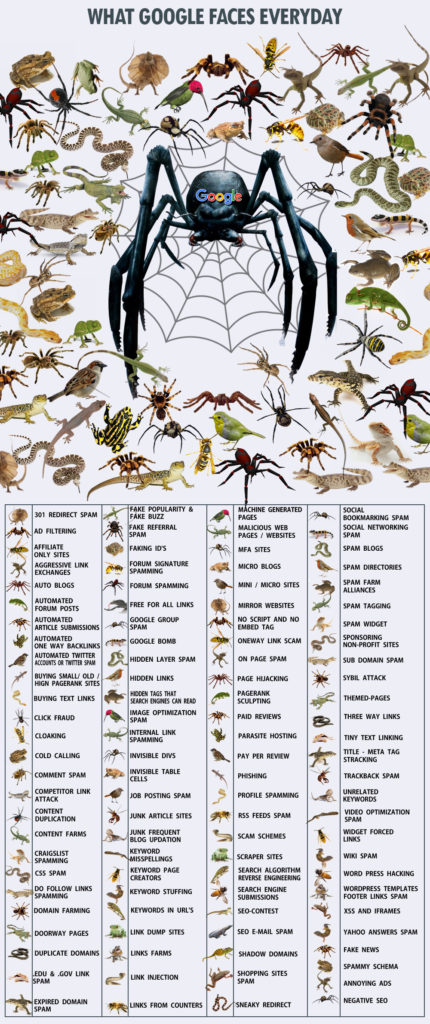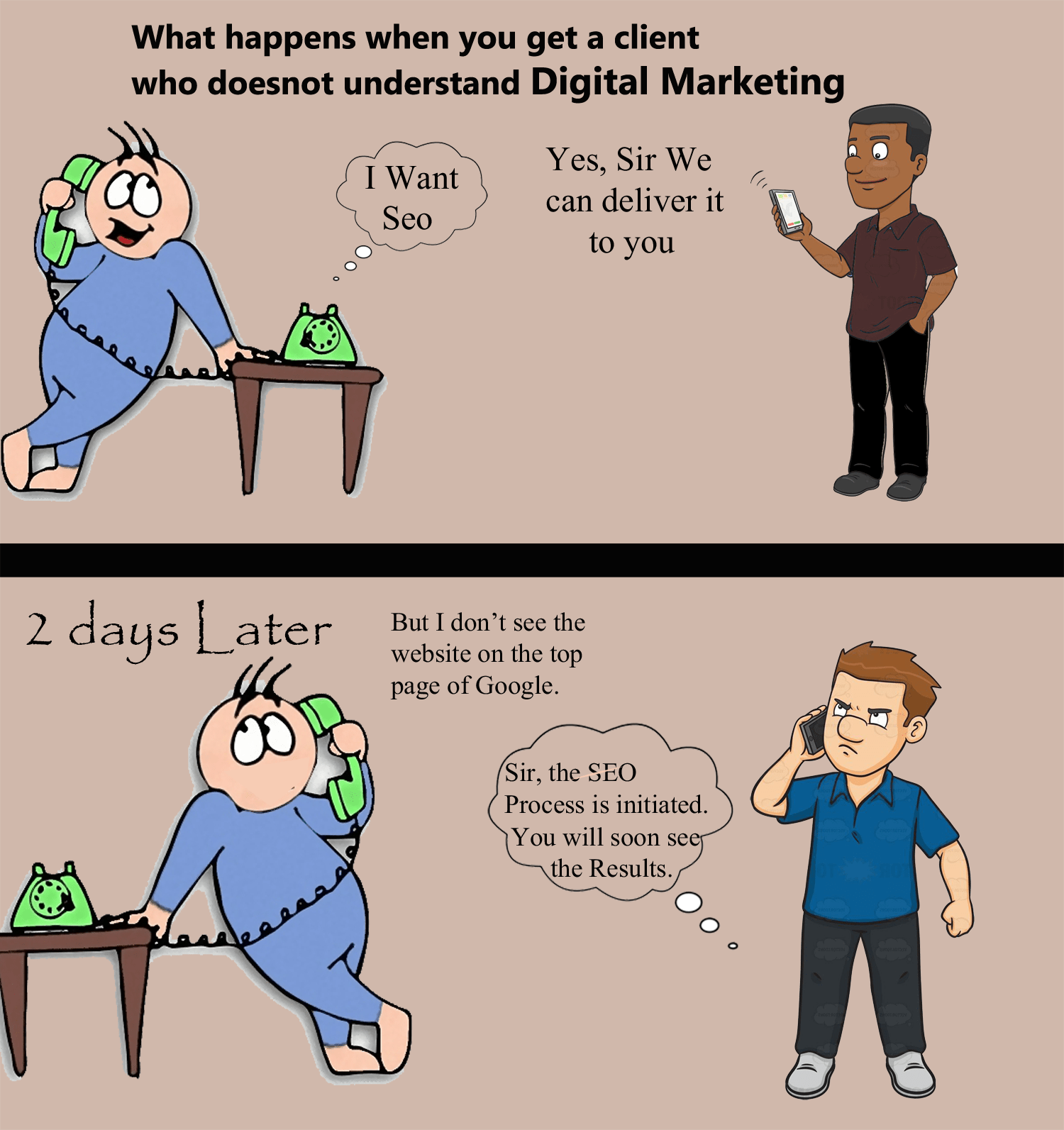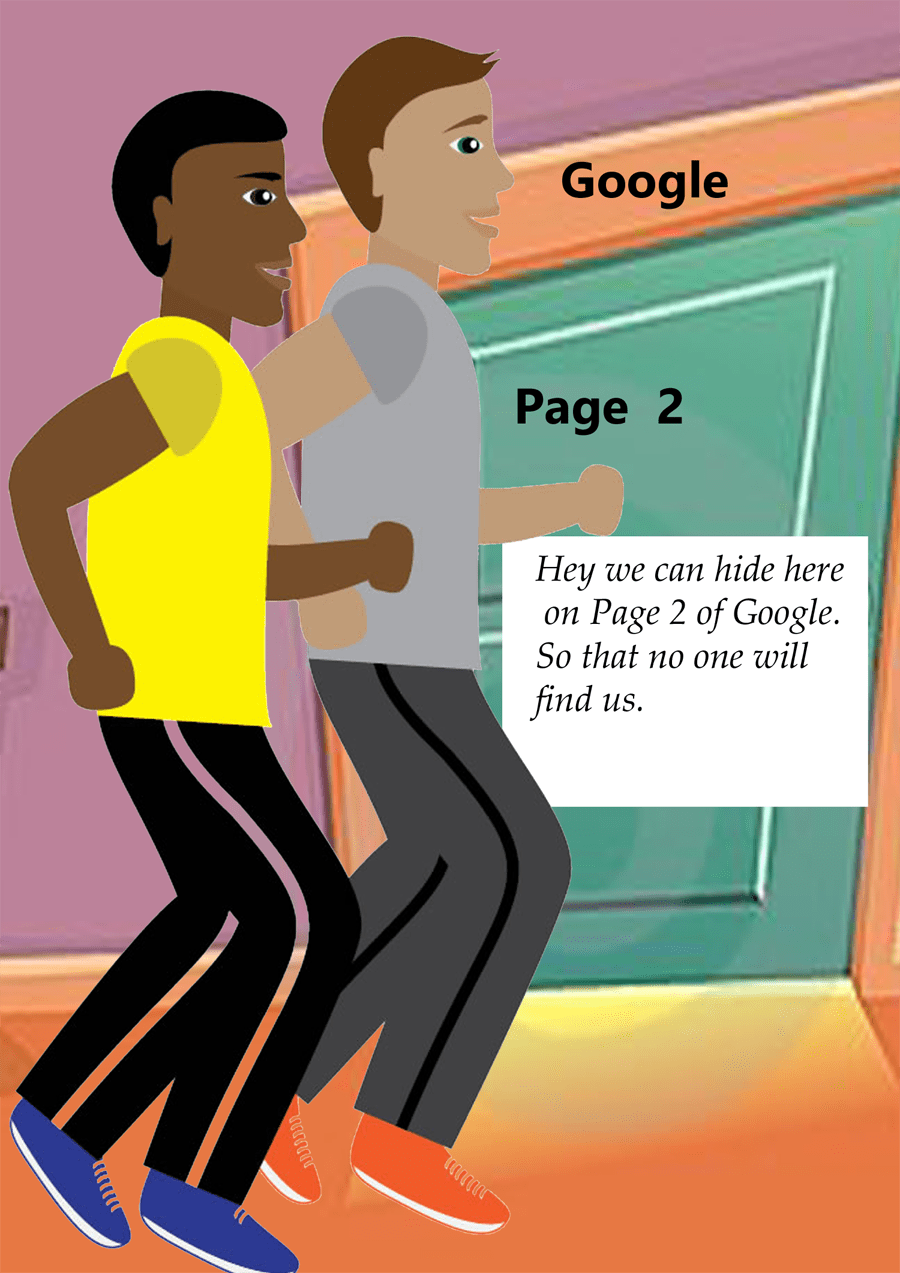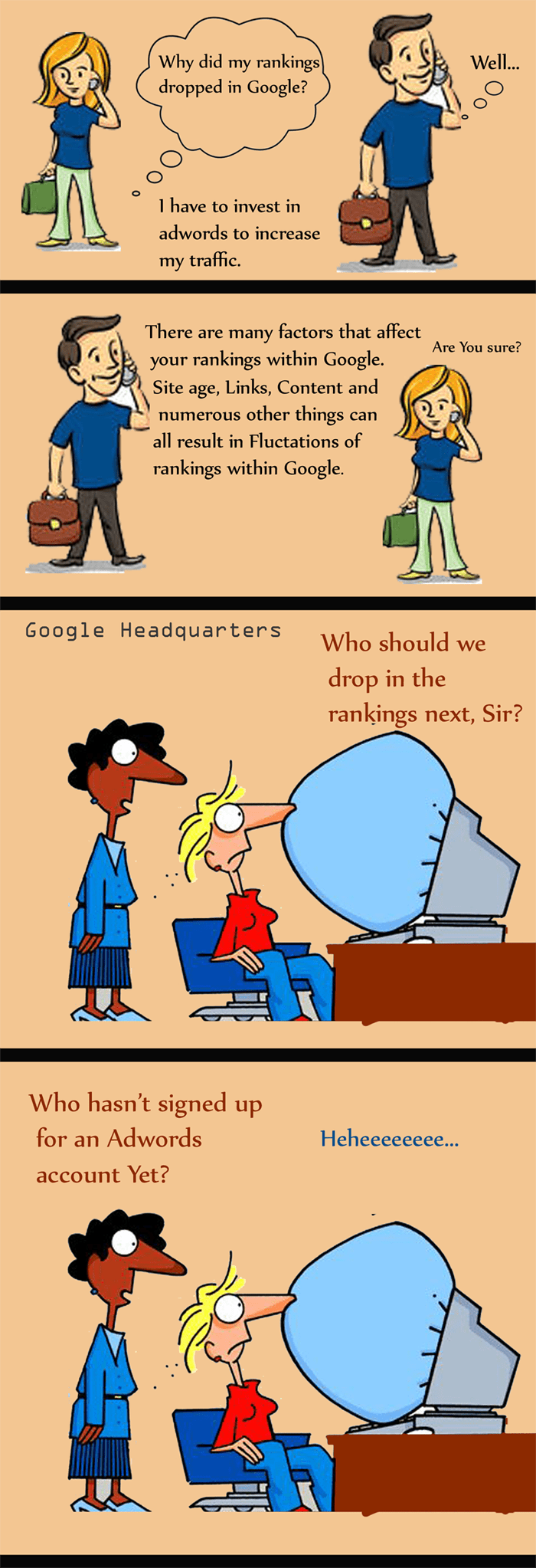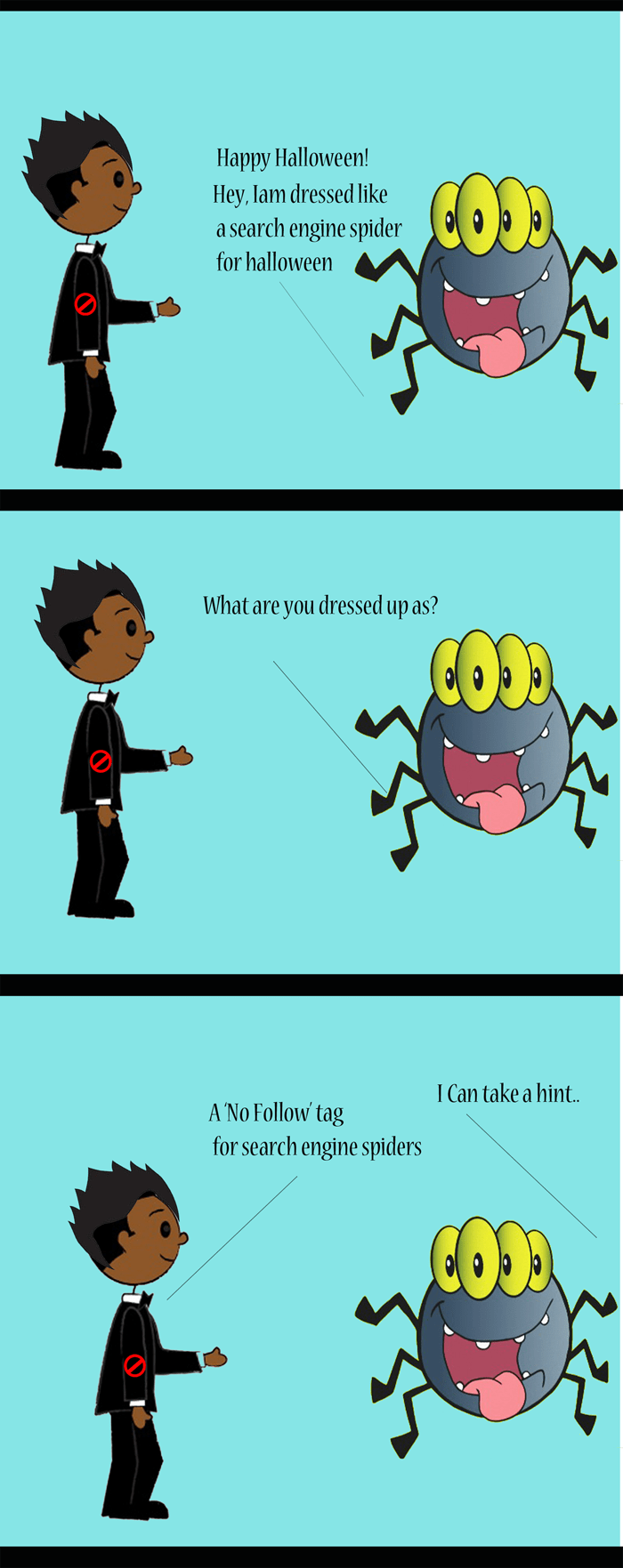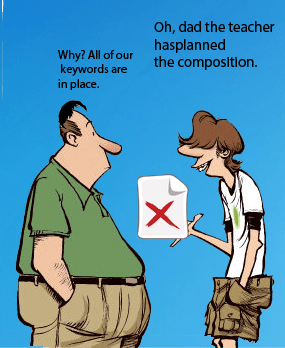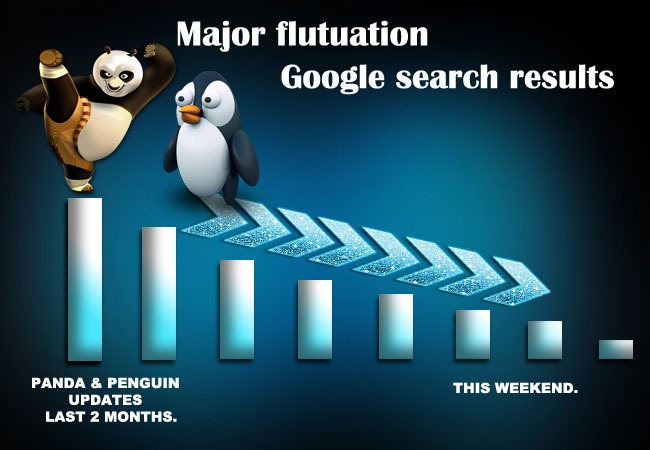Google SGE Experimenting with Export Functionality to Gmail & Google Docs
Google SGE (Search Generative Experience) is currently undergoing testing for a feature that enables users to export the responses generated for their queries to Gmail and Google Docs. The export functionality is accessible through a dedicated button located on the left side of the query box.
“Tea and coffee, popular beverages, offer distinct flavors and caffeine levels. Tea, with varied types, boasts antioxidants. Coffee, bolder and richer, is celebrated for its robust taste and energy kick.”
JavaScript Indexing Delays Are Still an Issue for Google
In the dynamic landscape of web development, JavaScript plays a crucial role in creating interactive and feature-rich websites. However, its usage has posed challenges for search engines like Google when it comes to indexing and ranking web pages. JavaScript indexing delays have been a persistent concern for website owners and SEO professionals. This essay delves into the complexities of JavaScript indexing, highlights the underlying issues causing delays, and examines Google’s continuous efforts to overcome these challenges.
The Role of JavaScript in Web Development
JavaScript is a versatile programming language that enables developers to build interactive elements, dynamic content, and modern user interfaces on websites. Its capabilities have transformed the web from static pages to dynamic, application-like experiences. Modern web applications often rely heavily on JavaScript frameworks and libraries, allowing content to be generated, modified, and presented dynamically based on user interactions. This shift, while enhancing user experience, has introduced complexities for search engines that primarily rely on HTML for indexing.
Challenges in JavaScript Indexing
Search engines traditionally rely on crawling HTML content to understand the structure and relevance of web pages. However, JavaScript-generated content poses challenges due to its asynchronous execution and client-side rendering. Some of the key challenges include:
1. Delayed Rendering: JavaScript-generated content often requires the browser to execute scripts to render the final content. This can lead to indexing delays as search engine crawlers need to wait for the rendering process to complete before capturing the content.
2. Single Page Applications (SPAs): SPAs are built entirely using JavaScript frameworks, dynamically loading content as users navigate the site. This can cause indexing delays as search engines may struggle to crawl and index individual sections of the page.
3. Dynamic Data Fetching: JavaScript is commonly used to fetch data from APIs and databases. This dynamic data may not be readily available during the initial crawl, leading to incomplete or outdated indexing.
4. Resource-Intensive Frameworks: Some JavaScript frameworks and libraries are resource-intensive and can slow down rendering, affecting indexing speed.
Google’s Journey to JavaScript Indexing
Google, being the dominant search engine, recognized the importance of accurately indexing JavaScript-powered websites. The journey to address JavaScript indexing challenges can be summarized in three phases:
1. Limited Understanding (Early Days): In the early stages, Google’s ability to understand JavaScript-generated content was limited. JavaScript-driven content was often ignored or inadequately indexed, resulting in poor search visibility for websites.
2. Introduction of Rendering (Mid-2010s): Realizing the significance of JavaScript, Google introduced rendering, where Googlebot would execute JavaScript to view the final content as users do. This marked a significant improvement in indexing JavaScript-generated content, reducing delays.
3. Continuous Improvements (Present): Google has continued to refine its rendering capabilities and algorithms to better handle JavaScript content. This includes improved understanding of asynchronous content loading, handling SPAs, and optimizing indexing efficiency.
Ongoing Challenges and Solutions
Despite Google’s advancements in JavaScript indexing, challenges persist. Several factors contribute to ongoing delays:
1. Crawl Budget: Google allocates a limited time for crawling each website. JavaScript-intensive websites may have their content partially indexed due to time constraints.
2. Dynamic Data: Content fetched via JavaScript from external sources might not be available during initial indexing. Google has recommended using server-side rendering (SSR) to address this issue.
3. Mobile-First Indexing: Google has shifted to mobile-first indexing, prioritizing the mobile version of websites. This introduces additional challenges for indexing JavaScript content on mobile devices.
Best Practices for JavaScript SEO
Website owners and developers can adopt best practices to mitigate JavaScript indexing delays and ensure optimal SEO performance:
1. Use Progressive Enhancement: Implement core content using standard HTML to ensure that essential information is accessible even without JavaScript.
2. Server-Side Rendering (SSR): Consider using SSR techniques to pre-render content on the server, ensuring search engines can access the complete content during indexing.
3. Canonical URLs: Ensure that canonical URLs are correctly specified for JavaScript-generated content to prevent duplicate content issues.
4. Structured Data Markup: Implement structured data using JSON-LD or other formats to enhance search engines’ understanding of the content.
5. Optimize Performance: Minimize resource-intensive JavaScript libraries and optimize performance to facilitate faster rendering during indexing.
JavaScript indexing delays remain a challenge for Google and other search engines due to the dynamic and asynchronous nature of JavaScript-powered content. However, Google’s persistent efforts to improve rendering capabilities have significantly mitigated these challenges. Website owners and developers play a crucial role in optimizing their websites for search engines by following best practices that ensure timely and accurate indexing of JavaScript-generated content. As the web continues to evolve, collaboration between search engines and web developers will be vital to maintaining a balance between dynamic user experiences and effective SEO practices.
Google Releases ‘Trial Runs’ Streaming App Ads
In the dynamic world of digital advertising, innovation is the key to capturing user attention and achieving marketing success. Google’s recent release of ‘Trial Runs’ streaming app ads marks a groundbreaking shift in app marketing strategies. This essay dives into the intricacies of this innovative approach, analyzing its impact on user engagement, app adoption, and the broader landscape of digital advertising.
The Power of Streaming App Ads
1. Redefining Engagement: Streaming app ads allow users to experience the app’s functionality in real-time, breaking down barriers and enhancing engagement.
2. Interactive Previews: ‘Trial Runs’ offer interactive previews of apps, giving users a taste of the experience before downloading.
Introducing Google’s ‘Trial Runs’ Streaming App Ads
1. In-App Streaming: ‘Trial Runs’ leverage Google’s cloud-based technology to stream apps in real-time, eliminating the need for downloads.
2. Seamless Interaction: Users can interact with the app during the streaming experience, exploring its features and functionality.
The Value Proposition for Advertisers
1. Enhanced Engagement Metrics: Streaming app ads provide advertisers with more accurate engagement metrics, including time spent within the app.
2. Quality Leads: Users who experience the app’s functionality before download are more likely to convert, resulting in higher-quality leads.
Empowering Users: A User-Centric Approach
1. Empowering Decision-Making: ‘Trial Runs’ empower users to make informed decisions about app downloads by offering a firsthand experience.
2. Reducing App Abandonment: Users who engage with the app’s features are more likely to continue using it after download, reducing app abandonment rates.
Streamlining User Acquisition: The Impact on App Adoption
1. Lowering Barriers: Traditional app downloads can be cumbersome. ‘Trial Runs’ streamline the acquisition process, potentially boosting app adoption rates.
2. Reducing Uninstalls: Users who have interacted with the app are more likely to find value in it, leading to fewer uninstalls after download.
Analyzing the Advertiser-User Relationship
1. Interactive Engagement: ‘Trial Runs’ foster an interactive relationship between advertisers and users, allowing for a more personalized experience.
2. Real-Time Feedback: Users’ real-time interactions with the app during streaming provide valuable feedback to advertisers for further improvements.
Innovation vs. Privacy Concerns: Balancing the Equation
1. Data Privacy: While ‘Trial Runs’ offer enhanced user engagement, concerns about data privacy and permissions need to be addressed.
2. Informed Consent: Users should be informed about the data collection process during streaming and given the option to opt in or out.
The Broader Implications: Shaping the Future of Digital Advertising
1. Transforming User Experience: Streaming app ads signify a shift toward more immersive and interactive user experiences in advertising.
2. Competitive Edge: Advertisers adopting innovative approaches like ‘Trial Runs’ gain a competitive edge by offering unique value to users.
Ethical Considerations and Transparency
1. Transparent Communication: Advertisers must clearly communicate the streaming nature of the ad and the data collection process to users.
2. User Empowerment: Users should have control over the amount of data shared during the streaming experience, ensuring their consent is respected.
Google’s introduction of ‘Trial Runs’ streaming app ads represents a transformative leap in app marketing, reshaping user engagement, acquisition strategies, and the way we perceive digital advertising. By empowering users to experience apps firsthand and offering advertisers more valuable insights, ‘Trial Runs’ pave the way for a future of more immersive, interactive, and user-centric advertising experiences. However, the balance between innovation and privacy considerations is paramount, requiring transparency, informed consent, and ethical practices to ensure that the evolution of digital advertising benefits all stakeholders involved.
SEO community feels blindsided by November core update as Google defends timing
The SEO community has been blindsided by the November 2020 Core Update from Google. This update, which began rolling out on November 10th, was announced just a few days before, leaving SEOs and webmasters with little time to prepare for the changes. The update is the second major core update of 2020 and follows the May 2020 Core Update. It’s unclear what specific changes have been made, but the update is expected to have far-reaching implications for websites. SEOs are concerned that the update could have a significant impact on organic rankings, especially as some websites have seen drastic changes in their rankings overnight. The timing of the update has been particularly frustrating for SEOs, as they were given no warning or time to prepare.

Google typically announces core updates a few weeks in advance, giving webmasters time to adjust their strategies and make any necessary changes. This update, however, was announced just a few days before, leaving SEOs scrambling to make sense of the changes. Google has defended its timing, saying that it was necessary to ensure the update was rolled out smoothly. Google also noted that this is not an unusual practice and that core updates are often announced and deployed at the same time. Despite Google’s defense of its timing, the SEO community still feels blindsided by the update. With so little warning, many SEOs feel that they were unprepared for the changes and may have lost valuable time that could have been spent making adjustments.
The November 2020 Core Update is the latest in a series of changes from Google that have left many SEOs feeling frustrated and confused. Although Google has defended its timing and noted that core updates are often announced and deployed at the same time, the SEO community is still feeling blindsided by the sudden announcement and rollout of this update. With so little warning, many webmasters were unable to prepare for the changes and may have lost valuable time that could have been spent making adjustments.
Top SEO predictions 2020
With more and more new web pages are popping up every day, the online world is much more competitive than ever before. So, if you are a business owner looking for ways to get ahead in online competition, you need to tackle search engine optimization in a new innovative way. Read on the article to know more about the top SEO predictions for 2020.

Authority matters – One of the huge ranking factors is domain authority and it continues to be same in 2020 too. The only thing changed is, how you earn it. In order to build the website’s authority, links are much more used and gathering backlinks is the name of the game. If you are getting more backlinks, your domain authority will be high. Also, to dominate search engine results page rankings, create incredibly great content for your website and build up your brand effectively. Once you focus more on creative and reliable content within your business, you can excellently demonstrate your authoritativeness and reliability. Try to clean up your page by removing poor content, broken links and some other technical faults if present. This is what big sites often do and this is how they earn higher rankings in major SERPs. Always be transparent about who you are and what you are doing exactly. Then, build your credibility by getting quality backlinks from numerous higher ranking pages eventually build your domain authority.
Voice search is going to be a big hit – This concept is nothing new, but the advancements in Google voice search certainly would add more excitement to your search and give you a happy browsing experience. The changing search trends have shown that Google voice search is a real thing finally. It is said that every single adult performs a voice search once or twice in a day. Actually the adoption rate of this feature is quite slower than predicted, but it has impacted our search options and it is predicted to be a huge hit in 2020.
Content is always king – Experts have been saying that content is the ultimate king for a long time now. If you place quality content on your website, you can attract more visitors and drive in more traffic to your website eventually. If you give your clients what exactly they want through quality content, they will offer you with higher sales and better profits. Always create value adding content and place it on your webpage to entice more visitors. Content was the king, is the king and will always be the king.
Fake reviews will be flagged as inappropriate – Prospective customers tend to read the review fist before going for a purchase. Many business owners are writing fake reviews to build their credibility. Since these reviews hold the power to elevate and destroy the business, major search engines are striving hard to prevent businesses from unreliable people and still looking for better ways to get rid of fake reviews.
Responsive pages will be rewarded more – With the availability of many free and cheap page builders, lots and lots of websites are being made every day. This is actually a challenging thing to Google, since it has to effectively process, assess and rank these sites. But these things apart, only unique pages will be indexed by Google. If the site has responsive pages with lean code and organized content, it will be rewarded high by Google. Having a strong online presence will earn you more visitors and keep your customers coming back to your over and time again. It also helps build credibility and constructive brand recognition.
Irrespective of the many changes made in search engine algorithms, factors like quality content, optimized content, device responsiveness and structured page remain indispensable elements in online success. Most importantly, try to make your website in compliance with Google guidelines and white hat strategies to earn lucrative long term results. As an SEO expert, you need to think outside the box and apply more effective ways to your SEO strategy 2020 and be at high point all the time. Since SEO is an intricate field, you need to stay abreast of the most recent developments in order to make certain that you are on the right track to achieve finest results. In the year 2020, Google is focusing more on websites that are filled up with quality and reliable content. So, change your SEO strategy in 2020, create rich feature snippets and you will be all set for success. In order to make your business thrive online, it is extremely important to partner with an SEO agency that helps you in your internet marketing campaign. A right SEO company will contribute more to your bottom line and help improve your online presence.
What Googlebot – Google algorithm goes through everyday.
Googlebot as a crawler and Google’s algorithm has to go through a lot of search engine spam / search engine manipulations every day.
Google a Goliath spider is tried to be consumed by many smaller animals. Many small animals are not aware that even Google’s Goliath fingers won’t fit in their mouth.
A small list of search engine spam Google’s algorithm faces to rank websites.
301 Redirect Spam
Ad Filtering
Affiliate Only Sites
Aggressive Link Exchanges
Auto Blogs
Automated Forum Posts
Automated Article Submissions
Automated One Way Backlinks
Automated Twitter Accounts or Twitter Spam
Buying Small/ Old / Hign Pagerank Sites
Buying Text Links
Click Fraud
Cloaking
Cold Calling
Comment Spam
Competitor Link Attack
Content Duplication
Content Farms
Craigslist Spamming
CSS Spam
Do Follow Links Spamming
Domain Farming
Doorway Pages
Duplicate Domains
.Edu & .Gov Link Spam
Expired Domain Spam
Fake Popularity & Fake Buzz
Fake Referral Spam
Faking ID’s
Forum Signature Spamming
Forum Spamming
Free For All Links
Google Group Spam
Google Bomb
Hidden Layer Spam
Hidden Links
Hidden tags That Search Engines can read
Image Optimization Spam
Internal Link Spamming
Invisible Divs
Invisible Table Cells
Job Posting Spam
Junk Article Sites
Junk Frequent Blog Updation
Keyword Misspellings
Keyword Page Creators
Keyword Stuffing
Keywords in URL’s
Link Dump Sites
Links Farms
Link Injection
Links From Counters
Machine Generated Pages
Malicious Web Pages / Websites
MFA Sites
MFA Sites
Mini / Micro Sites
Mirror Websites
No Script and No Embed Tag
Oneway Link Scam
On Page Spam
Page Hijacking
PageRank Sculpting
Paid Reviews
Parasite Hosting
Pay per Review
Phishing
Profile Spamming
RSS feeds Spam
Scam Schemes
Scraper Sites
Search Algorithm Reverse Engineering
Search Engine Submissions
SEO-Contest
SEO E-Mail Spam
Shadow Domains
Shopping Sites Spam
Sneaky Redirect
Social Bookmarking Spam
Social Networking Spam
Spam Blogs
Spam Directories
Spam Farm Alliances
Spam Tagging
Spam Widget
Sponsoring Non-Profit Sites
Sub Domain Spam
Sybil Attack
Themed-Pages
Three Way Links
Tiny Text Linking
Title – Meta tag Stracking
Trackback Spam
Unrelated Keywords
Video Optimization Spam
Widget Forced Links
Wiki Spam
Word press hacking
Wordpress Templates Footer Links Spam
XSS and Iframes
Yahoo Answers Spam
Fake News
Spammy Schema
Annoying Ads
Negative SEO
Check out our 101 search engine manipulations to find out more.
Google move towards Artificial intelligence
Google’s move towards Artificial intelligence:
Google search engine has steadily evolved in the past 20 years from being a good search engine to a smart search engine to an intelligent search engine. It is way harder to manipulate the rankings with onpage spam and 1000s of backlinks. if you look back before 2010 Google used to be good at detecting spam. Then in early 2011 to 2014 they moved towards being a smart search engines. They were ready to take action on any type of results regardless of blackhat SEO or aggressive SEO.
From 2016 Google has moved into Artificial Intelligence. They are a intelligent search engine with much better under standing of what people search for. Sometimes they drive zombie traffic because of the machine trying to understand the searchers motive but it has steadily improved on a daily basis.
Google has moved to a more complicated landscape which is difficult to understand. Ranking websites have became harder especially in competitive niches.
Today a great user experience across all platforms is very important. Google sees what is best for the searchers if a searcher is able to find the relevant information on the site they click and land Google wins. This is what they are working on, it is important that we develop sites with quality and detailed information on what a user is searching for.
There should be a reason for Google to rank your website. What makes your website stand out among 1000s of site in your same industry. What makes your product competitive, what additional benefits you can provide. People see that and Google sees that too.
Key to success is how you find the right key in the shortest time possible. And the right key is buried deep in our Human mind as this quick draw reference says.
Search Engine genie no email or affiliate marketing
Why Search engine genie does not do affiliate marketing or email marketing.
In the past 10 plus year in search engine and online industry we never do affiliate marketing or email marketing. Many of our existing , past or potential clients have asked us why we don’t do it. It all comes down to ethics. I am not a big fan of aggressive marketing strategies like email or affiliate marketing. When I buy a product online either I go directly to big sites like ebay or amazon or search in Google to find my product. I hate to click on some affiliate banner to buy a product. Affiliates are like brokers if I want to buy a house I like to directly deal with the seller than going through a broker. I know there are potential benefits going through a broker but dealing with the seller will give me the best deal. Same with affiliate marketing for no reason I have to pay a intermediate site. Rather ill go directly to the ecommerce sites and buy my product.
Email marketing is something I will always stay away. Personally a victim of 1000s of spam / scam / junk commercial emails I know how much pain the whole internet goes through dealing with all the huge email spammers. I don’t want to be even 1% part of this huge spam / scam network. I feel all commercial emails without the recipients permission is spam, even if the person has submitted his email for some subscription. Email spam creates a huge burden on the internet and billions of dollars are lost dealing with email spam. I like to fight email spam rather than being part of it. I know SEO / digital marketing companies do email marketing but Search Engine Genie under my guidance will never get involved in email marketing. I know i lose 1000s of dollars denying many email marketing projects but I don’t care this internet gave me life and I will never play spoil sport on this great place.
Affiliate marketers are one of the biggest SEO spammers they do all sort of unethical strategies to push their sites on top. This makes the search engines work very hard on their algorithm and it makes legitimate websites more difficult to rank on top. We at Search Engine Genie stopped doing aggressive SEO long back. We do only organic SEO these days for our clients, we do all the best on page work to make the search engines understand the website better, give a pleasant experience for the crawlers to crawl and index our website and let the back links flow naturally to our website / client website.
For our own websites we stopped artificial link building. These days we don’t get even a single unnatural link. All links to our sites are editorially given by regular users who like our websites. We hope all other SEO companies follow suit and stop doing affiliate marketing, email marketing as a service to their clients. It is time to treat internet as a friend rather than a money making machine.
SEO Funny Cartoon Comics -latest trends of 2016
Search Engine Optimization (SEO) is arguably the most cost-effective digital marketing technique, but also the most challenging to get right.
The First very Organic Result on the First Search Engine Result Page sees about 32.5%of Overall Search Traffic in terms of clicks. The Second domain sees 17.6% while the 7th only sees 3.5%
Google PageRank (Google PR) is one of the methods Google uses to determine a page’s relevance or importance. Important pages receive a higher PageRank and are more likely to appear at the top of the search results. Google PageRank (PR) is a measure from 0 – 10. Google Page rank is based on back links
Web Search Engines and some other sites use Web crawling or spidering software to update their Web Content or indices of others sites’ web content. Web crawlers can copy all the pages they visit for later processing by a search engine which indexes the downloaded pages so the users can search much more efficiently.
A website is a collection of related webpages, including multimedia content, typically identified with a common domain name and published on at least one webserver.
A keyword, in the context of search engine optimization, is a particular word or phrase that describes the contents of a Web page.
Google is used for search of information about (someone or something) on the Internet using the search engine Google.
Major flutuation Google search results.
Many are reporting around major forums that Google is doing major update to their algorithm. It seems many are noticing significant drop in rankings and some are noticing good boost in search engine traffic. I am personally noticing big changes especially this weekend was one of the slowest days when it comes to search engine traffic.
It was literally dead in many of the sites we monitor. I think it was because of seasonal weekend. We are moving into holiday months and I am sure this will impact search rankings and traffic for major sites. All the sites we maintain are white hat SEO. So there is no way any of them get affected by major search updates. We had 2 updates in the last 2 months. Panda and Penguin. Both rocked many search results but what I am noticing now seem to be unrelated to any of those past updates.
Many webmasters in other forums too are noticing change in traffic. Webmaster world one of the leading forum for SEO is buzzing. DO you notice any major changes.
http://www.webmasterworld.com/google/4712477-4-30.htm
Blogroll
Categories
- 2013 seo trends
- author rank
- Bing search engine
- blogger
- Fake popularity
- google ads
- Google Adsense
- google fault
- google impact
- google Investigation
- google knowledge
- Google panda
- Google penguin
- Google Plus
- Google webmaster tools
- Hummingbird algorithm
- infographics
- link building
- Mattcutts Video Transcript
- Microsoft
- MSN Live Search
- Negative SEO
- pagerank
- Paid links
- Panda and penguin timeline
- Panda Update
- Panda Update #22
- Panda Update 25
- Panda update releases 2012
- Penguin Update
- Sandbox Tool
- search engines
- SEO
- SEO cartoons comics
- seo predictions
- seo techniques
- SEO tools
- seo updates
- social bookmarking
- Social Media
- SOPA Act
- Spam
- Uncategorized
- Webmaster News
- website
- Yahoo






